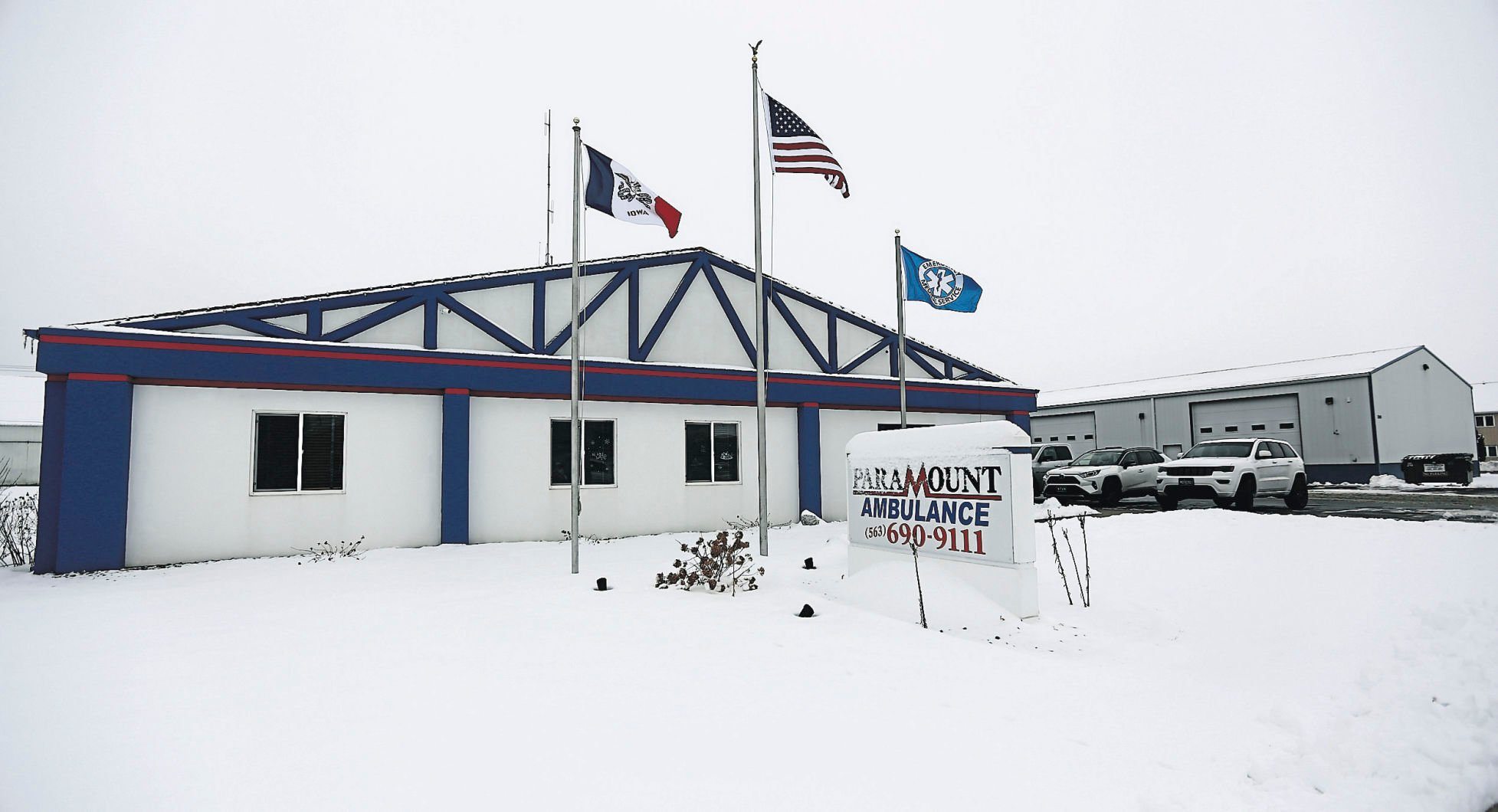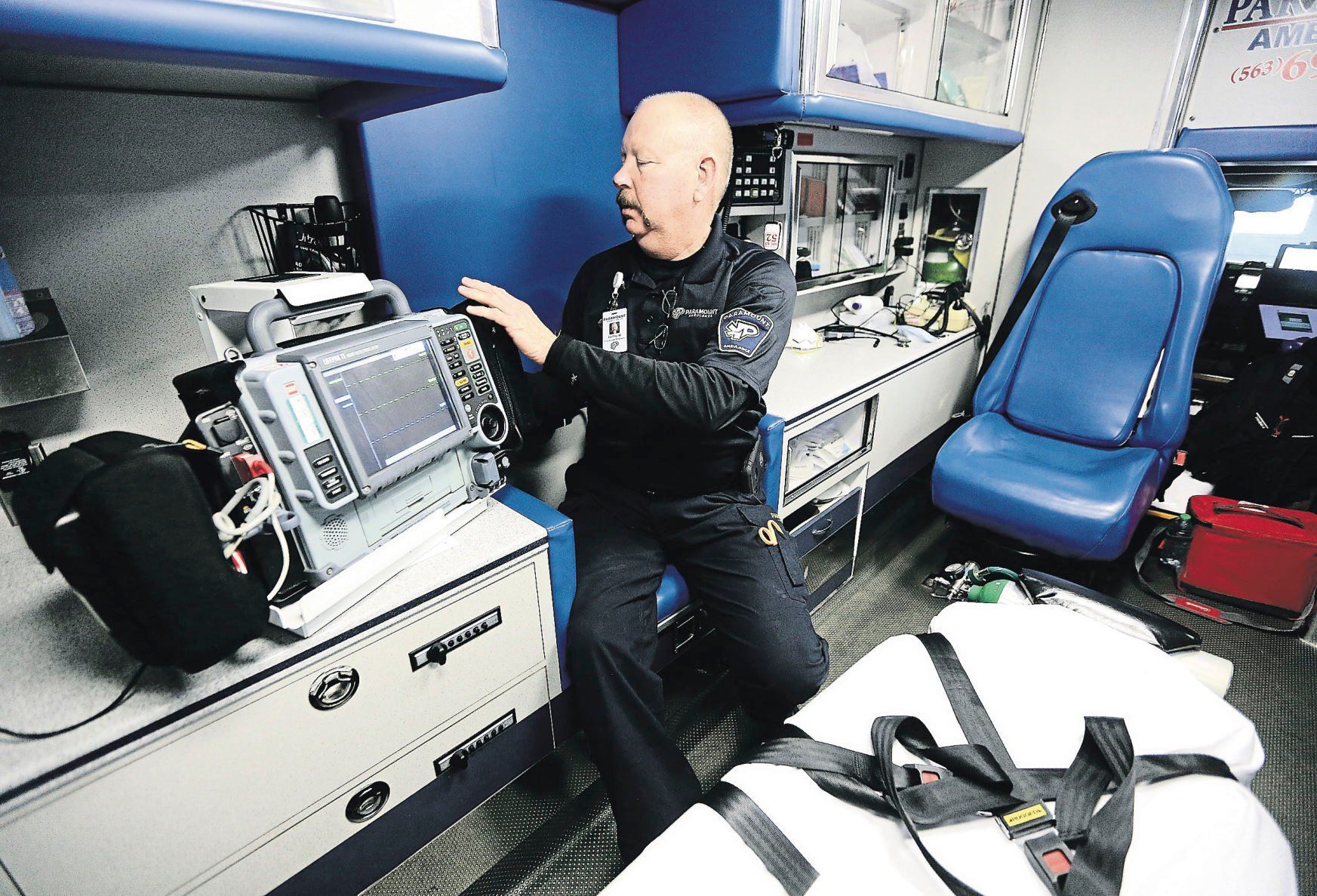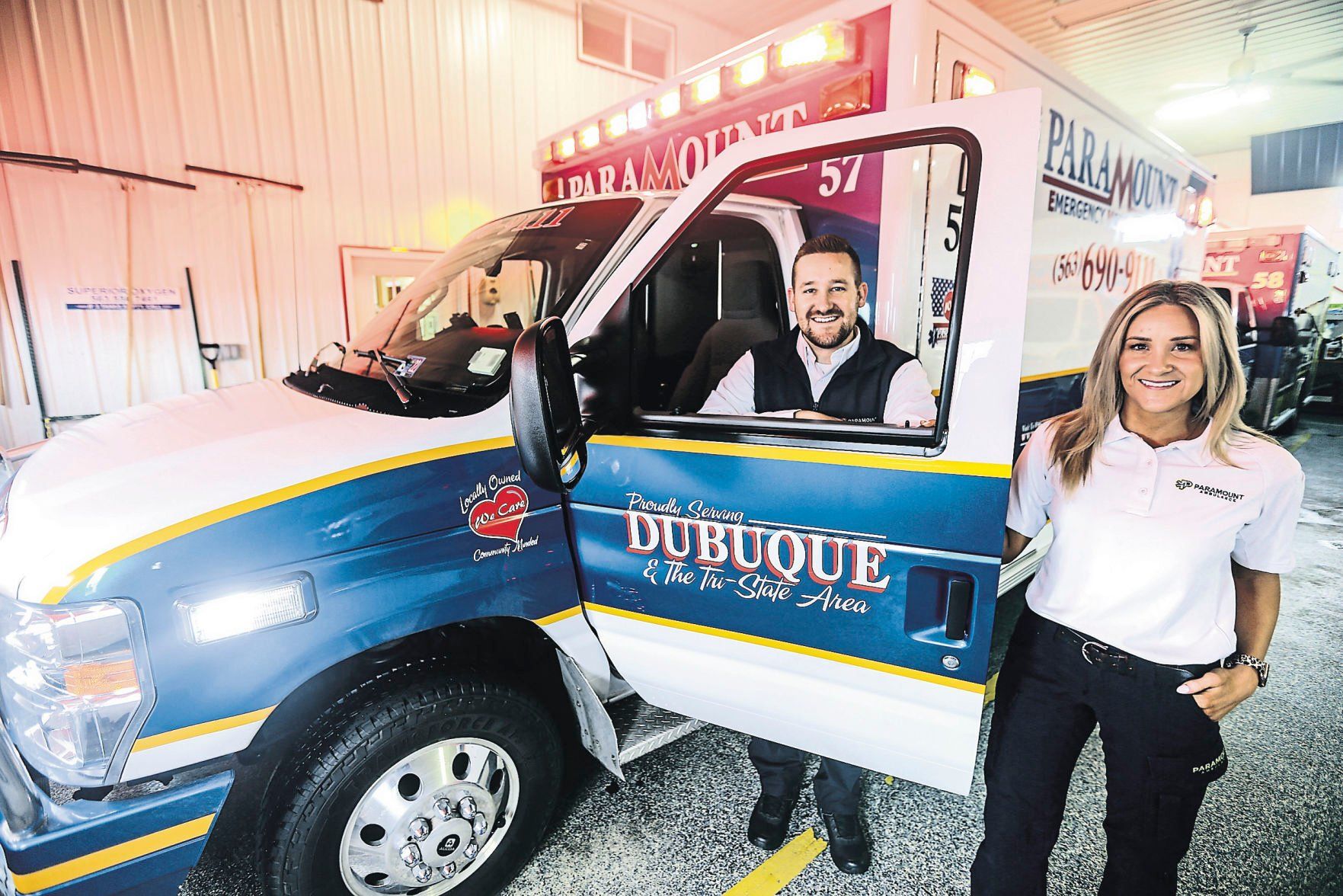Address: 5070 Wolff Road
Phone: 563-690-9111
Founded: September 2003
Employees: 33 fulltime
Ambulance fleet: 11
Andy Ney was 10 years old when his dad, Marvin, walked into the house with a dictionary. The word “paramount” was highlighted.
“He said, ‘That’s going to be the name of our ambulance company,’” Andy recalled. “My mom, who is a nurse by trade, said, ‘Our what?’”
Now the director of operations for Paramount Ambulance, Andy Ney and his twin sister, Alicia Ludescher, recently received the Mobile Healthcare 40 Under 40 Award from American Ambulance Association. The award recognizes how the 28-year-olds have helped expand Paramount Ambulance, which their parents, Marvin and Maria Ney, founded in 2003.
“We began as EMTs at 18, with the plan to work through college,” Ludescher said of the twins’ entry into the family business.
Ludescher wasn’t expecting to work in the private ambulance field full time.
“But you learn to love it,” she said. “I knew a lot about the industry just growing up around the business.”
Andy Ney said the siblings since have taken on increasingly large roles in the operation of Paramount.
“Alicia and I graduated from Loras College in 2015 and decided to work full time here,” Ney said. “Alicia brought public relations and organizational skills here. She has taken on the office administrator role. I’ve been promoted up from EMT to paramedic to supervisor to, now, director of operations.”
Paramount also recently received the Iowa EMS Association’s 2020-21 EMS Career Service of the Year Award. The firm previously received the award in 2010.
“Just as important as any 911 ambulance service is a private ambulance service,” said Katie Hill, clinical leader in the emergency department at MercyOne Dubuque Medical Center. “They bring patients from the hospital to and from a nursing home or an assisted-living facility, or to an outside hospital. They are very important to us here at the hospital.”
Paramount features a fleet of 11 ambulances, transporting patients about 7,000 times per year.
While public ambulance services often respond to emergencies, assess patients and transport them to hospital emergency rooms within minutes, Paramount primarily offers a more specialized service.
“What we specialize in are 90-minute transfers of critically ill patients,” Ney said.
About 70% of Paramount’s business consists of hospital-to-hospital transfers.
“It’s definitely a resource needed in Dubuque County,” said Sandy Neyen, who has headed up the paramedic training program at Northeast Iowa Community College since 1996. “Marvin (Ney) was a student of mine when he started Paramount, so I’ve known about Paramount since the start.”
Neyen said a private service such as Paramount fulfills a different need in the health care system.
“It’s different from a 911 service,” she said. “They do take critically ill patients, but they are having those patients (in an ambulance) for up to an hour or two. It’s a different skill set (from 911 services), and they do it very well.”
Andy Ney described Paramount’s ambulances — and the services they provide — as a mobile intensive care unit, often transporting patients to a location to receive higher-level care.
“We’re 90 miles in any direction from a higher level of care — it’s 83 miles to the University of Iowa, it’s 87 miles to the University of Wisconsin-Madison, and its 92 miles over to Mercy Health in Rockford,” he said. “We’re transferring critically ill patients. That’s what we specialize in — those critical care patients who are on ventilators or balloon pumps, any of those types of transfers. That’s where we thrive.”
About 20% of Paramount’s business involves transporting patients in Illinois and another 10% involves patients in Wisconsin.
Paramount’s newest vehicle can help transport heavier patients.
“We had 10 (ambulances) for many years, and our 11th truck is now a specialty care truck that can haul bariatric patients,” Ney said.
Bariatric patients are those who are classified as obese and have a body mass index of 30 or greater — sometimes, much greater.
“We have the capability now to transfer those patients,” Ney said.
Paramount added a motor coach, called the “caring coach,” that transports recovering patients home from a hospital.
“It will go anywhere,” Ney said.
Since 2019, the firm also provides fixed-wing-aircraft patient transportation.
“That is done through a business partner of ours, Physicians Air Transport out of Arkansas,” Ney said. “We’ve gone to Illinois to take a patient to North Carolina. We’ve taken a patient from Indianapolis to San Diego and the children’s hospital.”
Ney thinks Paramount’s future is tied to potential changes in his industry, which he calls “mobile health care.”
“I think in the future we will be assessing patients more through telemedicine — a quick jump on an iPhone — to see where we need to send people,” he said. “Do we need to send an ambulance to take you to the emergency department? Do we need to send a shuttle van to take you to acute care? Do we need to send you a private car to take you to some other specialty?”
In the present, Ney said, the company has strived to honor the life of an employee who died while on duty. Paramount EMT Steve Werner, 34, of Dubuque, died in April 2018 in a crash on the Julien Dubuque Bridge.
“In the wake of it, we stayed with the family as long as they needed us,” Ney said. “This was a valuable person in our family here — of our family business — we wanted to make sure he was remembered here. We have a scholarship in his name at NICC.”




